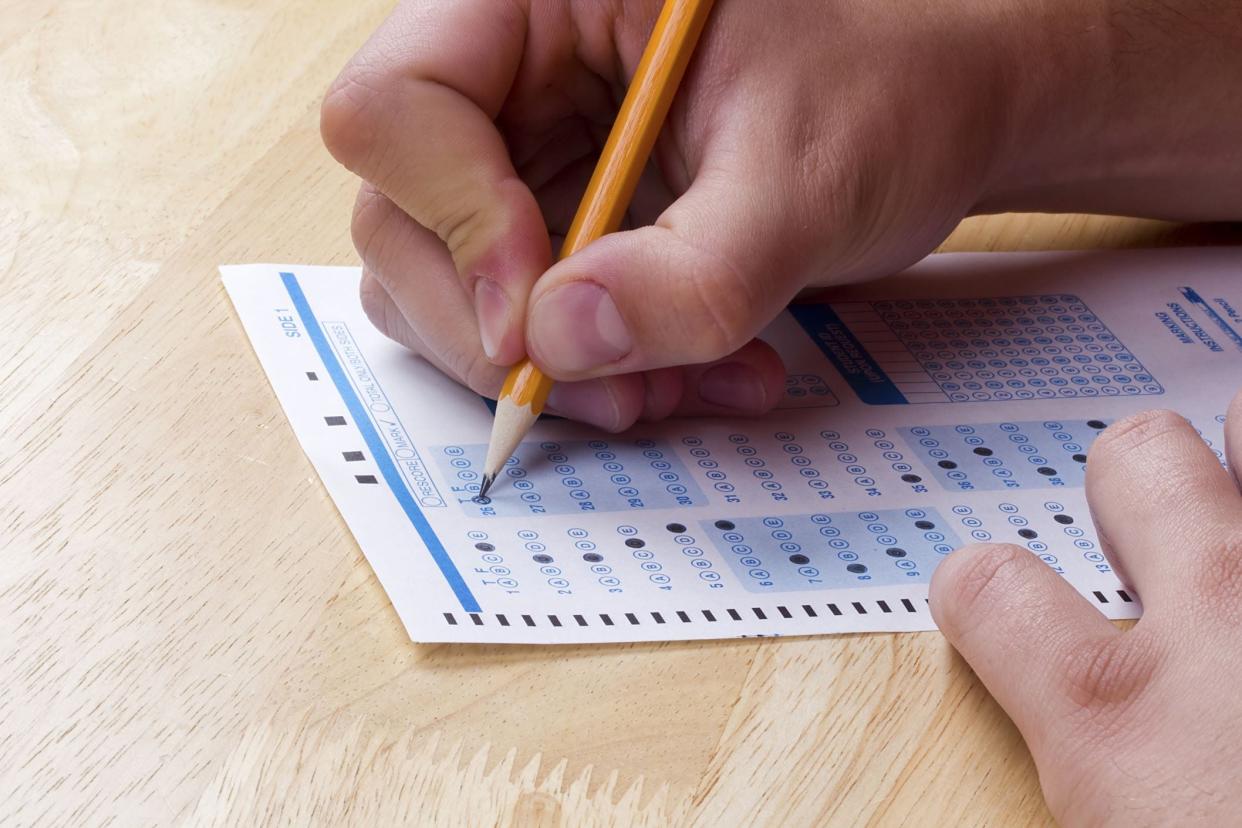Kansas high school seniors’ ACT scores remain flat, while nation’s average falls to historic low

Unlike their peers around the country, the Kansas high school class of 2022 didn't score worse, on average, on the ACT college-readiness exam.
But the state’s crop of graduating seniors continued to score at the lowest in at least a decade for the state, according to data released last week by the ACT.
The ACT scores students on a test that involves sections on English, math, reading and science — with each subject scored out of 36. Scores are then compiled into a composite score, also scored out of 36.
More:More than one in four Kansas students were chronically absent from school last year
Across the nation, the average composite score for the class of 2022 was 19.8. The data marks the lowest national composite score in over three decades and the first time since 1992 that the score has fallen below 20.In Kansas, the class of 2022 remained flat at 19.9, or less than two full points from the high of 22.0 Kansas high school seniors achieved in 2014.
Beside the subject and composite scores, ACT also reports the numbers of students who meet its College Readiness Benchmarks, or the minimum test scores required for students to be considered as having a reasonable chance of scoring at least a B in a first-year, entry-level college course in that subject.
Slightly less than a third, 32% of the 2022 graduating class who took the ACT test met at least three of the four benchmarks, while 42% met none, according to the national report. That’s compared to 33% and 39%, respectively, in Kansas.
The decline in scores appears to have been exacerbated by school shutdowns during the pandemic, although much of the decline traces back even further than the onset of COVID-19 in March 2020. Kansas students, on average, had typically scored a full point higher on the composite score compared to the national average, but they have lost much of that edge over the past half decade.
While the organization cautions against closely comparing data from pandemic-era cohorts of students against previous ones, ACT CEO Janet Godwin in a release called the trend the symptom of longtime, systemic failures that predate the pandemic.
“A return to the pre-pandemic status quo would be insufficient and a disservice to students and educator,” she said. “These systemic failures require sustained collective action and support for the academic recovery of high school students as an urgent national priority and imperative.”
The ACT has historically used by many institutions of higher education as a corollary entrance requirement to a high school diploma, but it and the similar SAT have fallen out of favor as more institutions become “test-optional.” Colleges and universities like the University of Kansas now accept higher high school grade point averages, in lieu of minimum ACT scores, for admission, although ACT scores continue to be a factor in determining many types of merit-based financial aid.
More:Some Kansas Republicans are upset as KU cuts ACT test from admissions requirements. Here's why.
State-by-state comparisons are also difficult, because participation rates change the likelihood of academically poorer students to take the test and skew scores downward.
In Kansas, the state legislature in 2019 began funding at least one free ACT test for every Kansan student in their junior year. Participation briefly increased to around 80%, but fell back to a pre-pandemic average of the lower 70 percentages in 2022.
Rafael Garcia is an education reporter for the Topeka Capital-Journal. He can be reached at rgarcia@cjonline.com or by phone at 785-289-5325. Follow him on Twitter at @byRafaelGarcia.
This article originally appeared on Topeka Capital-Journal: Kansas high school class of 2022 scoring lower on ACT standardized test

